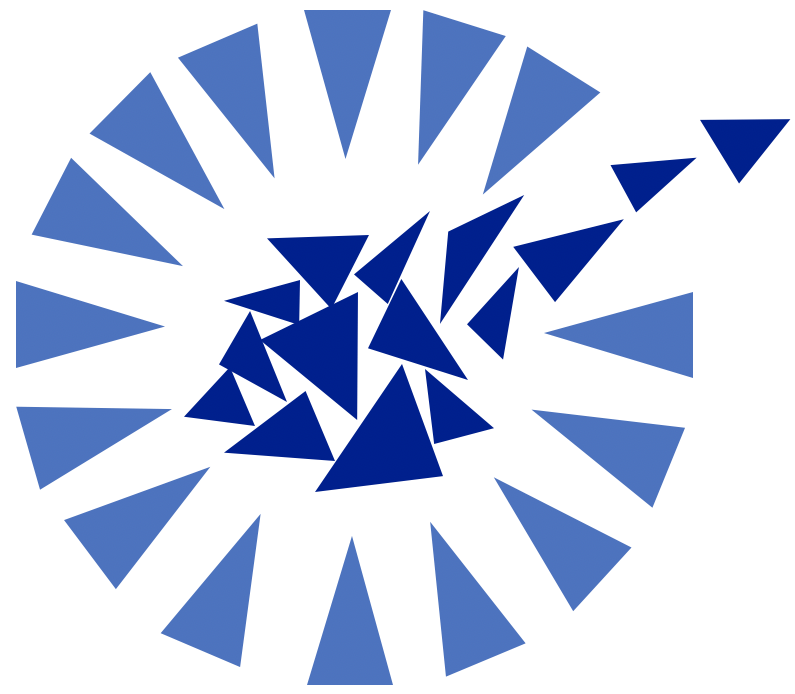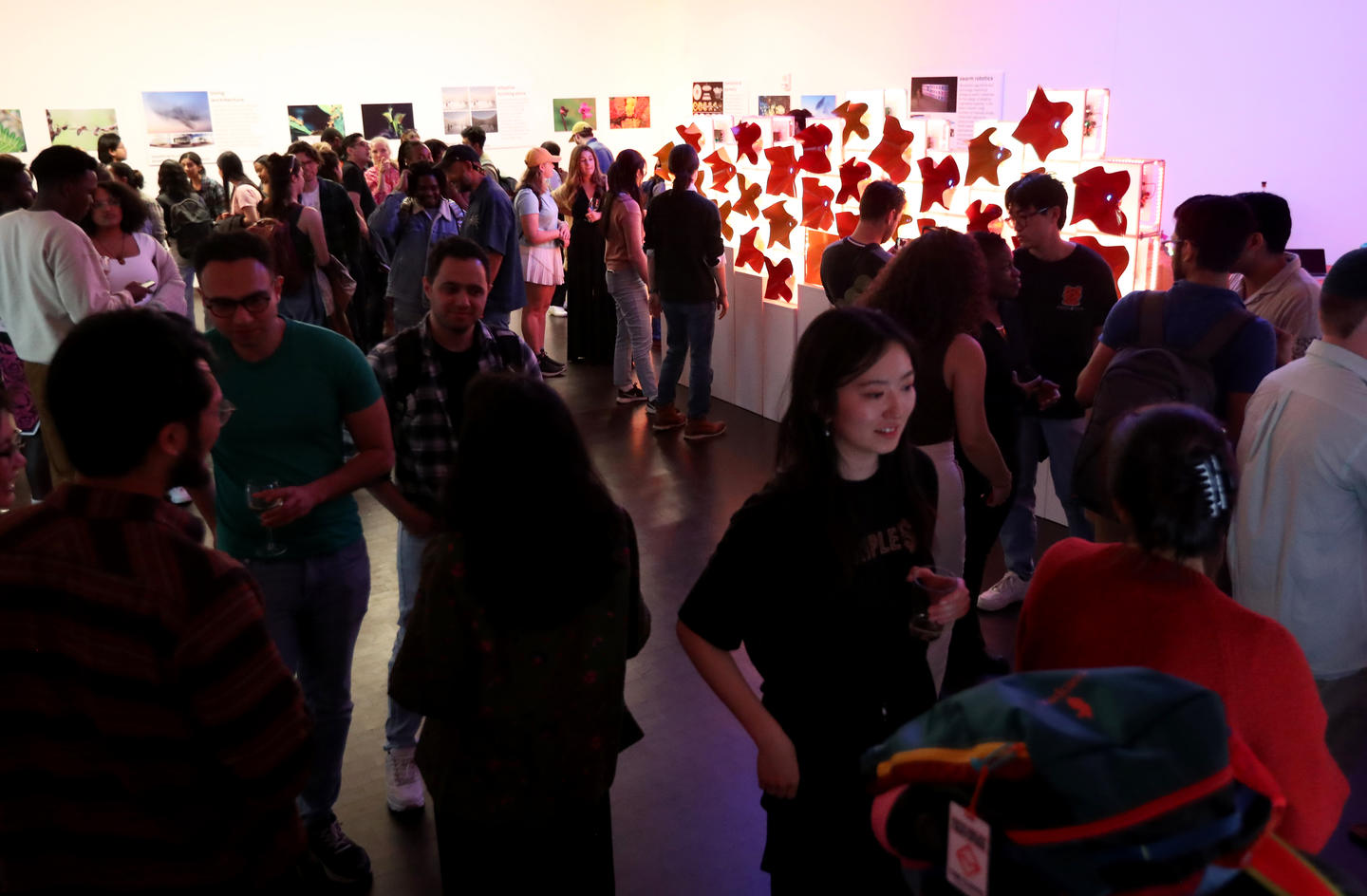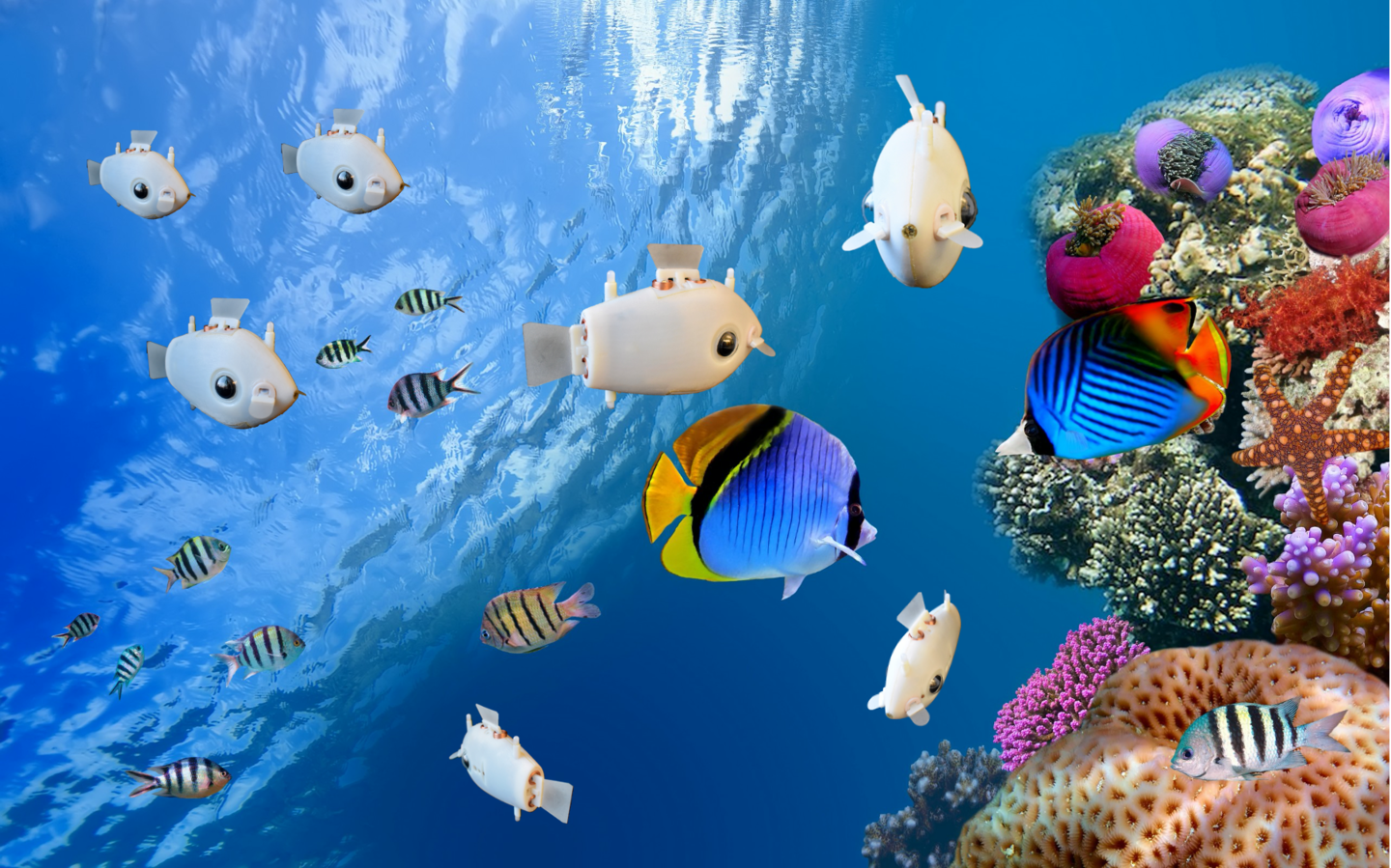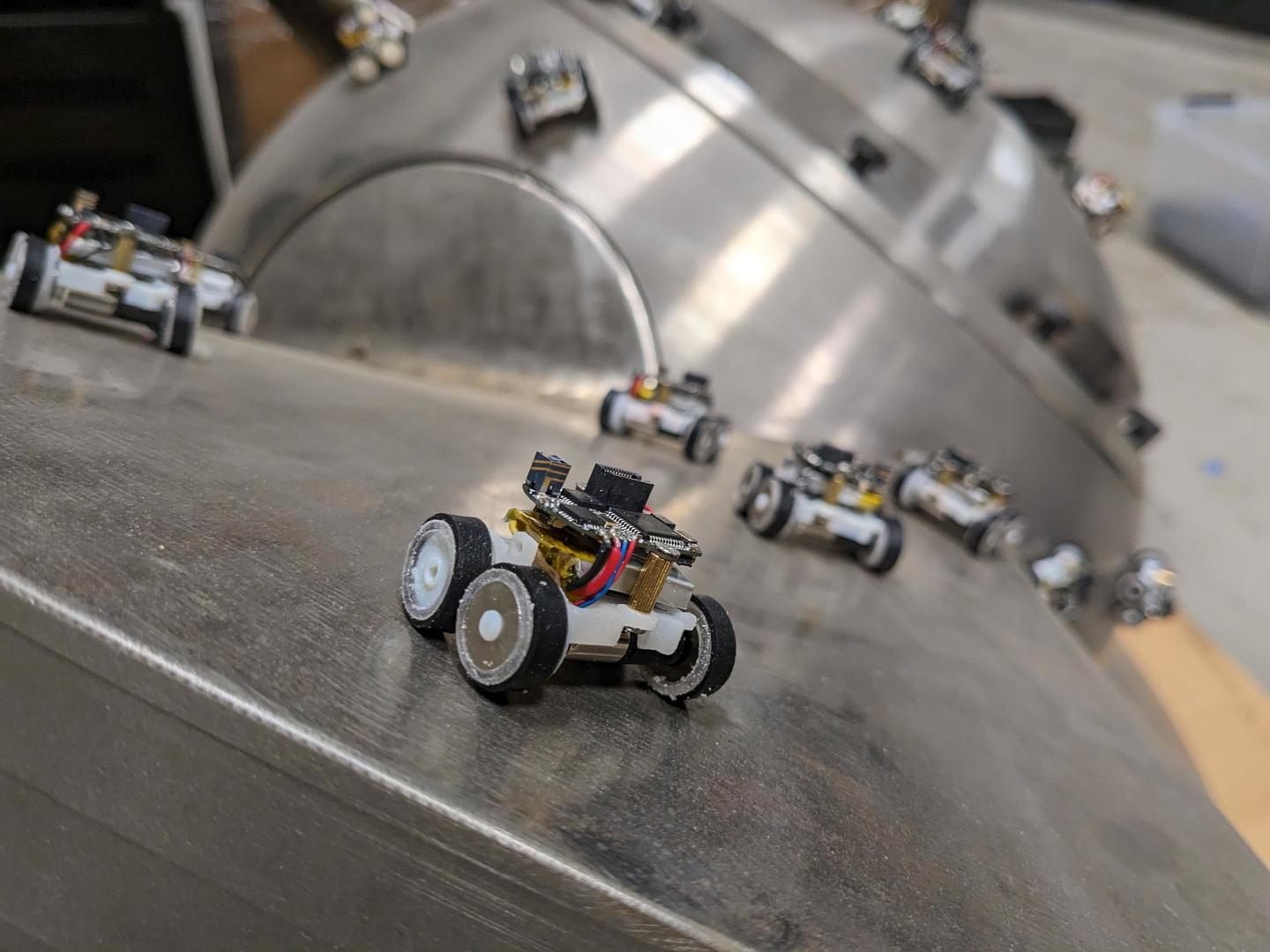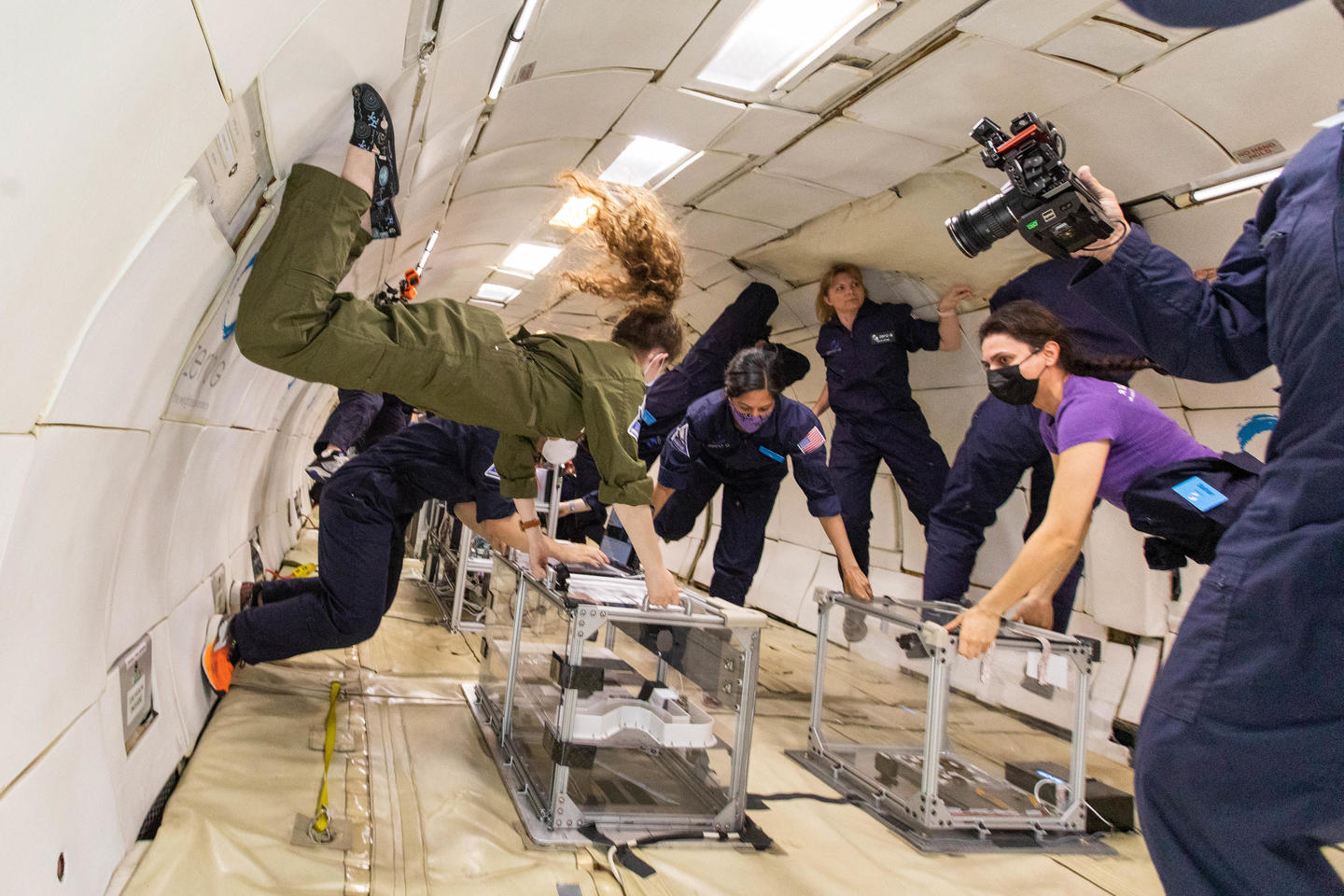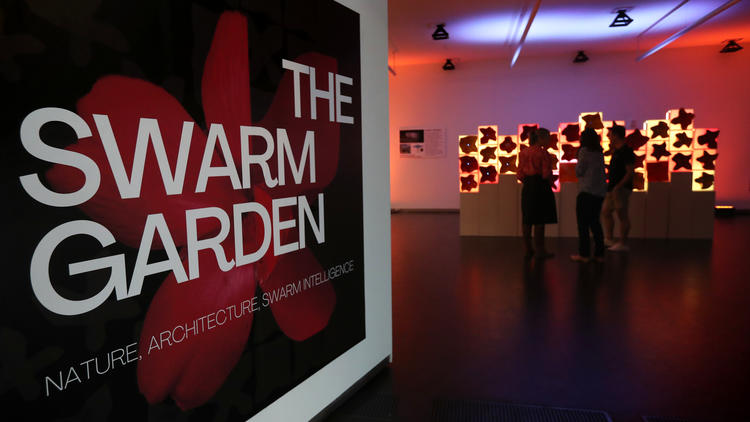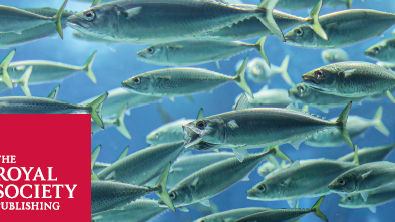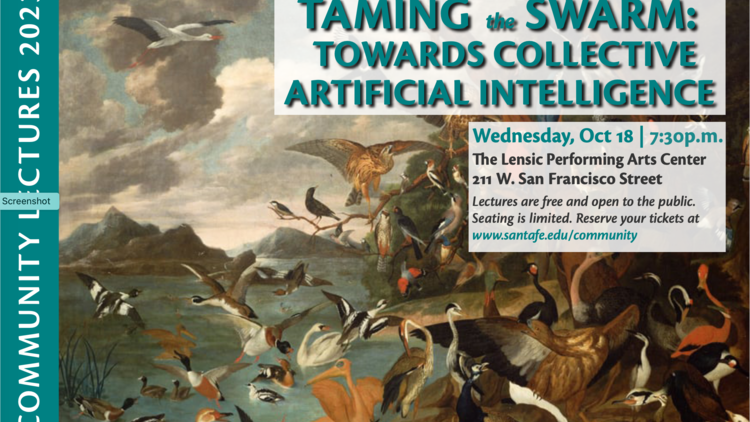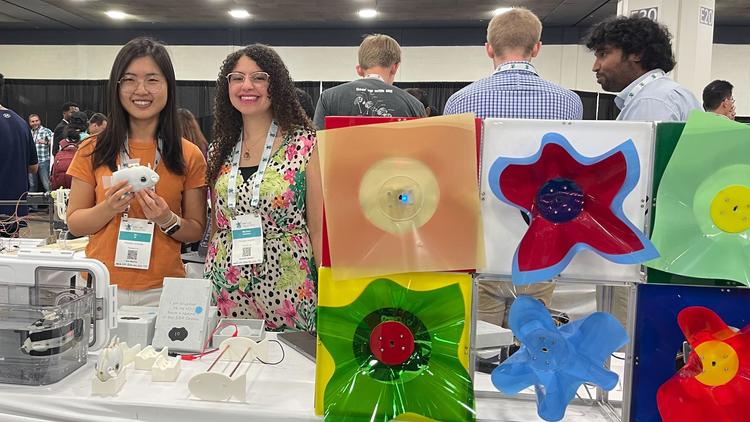In nature, groups of thousands of individuals cooperate to create complex structure purely through local interactions -- cells, ants, bees, fish. Even though each individual has limited ability, as a collective they achieve tremendous complexity. What would it take to create our own artificial collectives of the scale and complexity that nature achieves? Our group is interested in understanding and engineering self-organizing swarms, where large numbers of relatively simple agents cooperate to produce complex collective behavior. We design and build novel bio-inspired robots and swarm algorithms, focusing on the combination of embodied intelligence and collective intelligence. We also study self-organization in nature, in collaboration with biologists. Our work spans Robotics, AI, and Biology.
Lab News
Apr 9, 2024: The Swarm Garden exhibit was a huge success! Held in the Lewis Arts Complex, over a 100 visitors experienced firsthand the blend of art + engineering, witnessing how dynamic “living-like” spaces promote…
Oct 25, 2023: Dr. Hungtang Ko's paper is finally out! Check out our review article in Royal Society Interface: "The role of hydrodynamics in collective motions of fish schools and bioinspired underwater robots" We are also the Nov cover photo!
Oct 18, 2023: Prof. Radhika Nagpal gave the Sante Fe Institute's Community Lecture at the Lensic Performing Arts Center in Sante Fe, NM. She talked about AI, army ants, self-assembling robots, and zeroG flights.
Oct 4, 2023: Dr. Merihan Alhafnawi and Dr. Di Ni showed off the new Swarm Garden modules and our BlueSwarm robots at the IROS Conference Robot Demonstration Expo in Detroit. Lots of visitors stopped by to see our systems in action.

